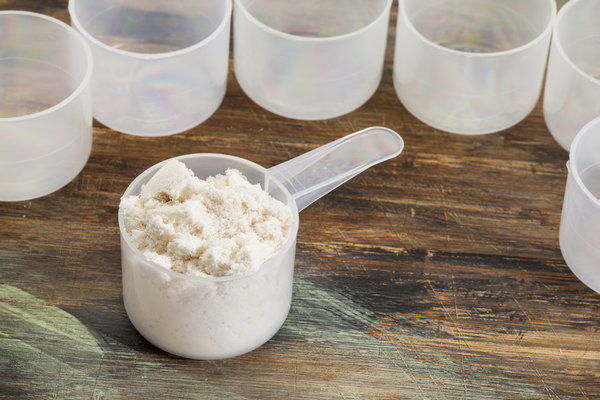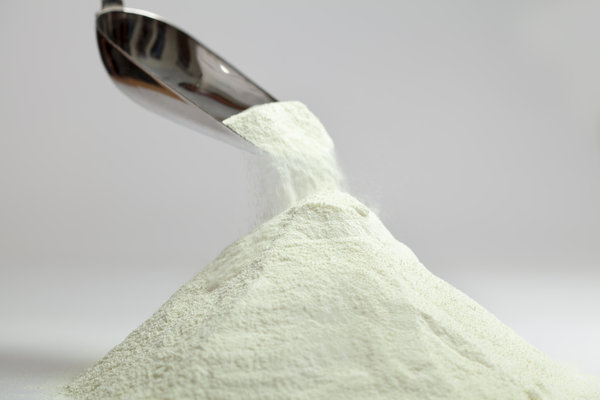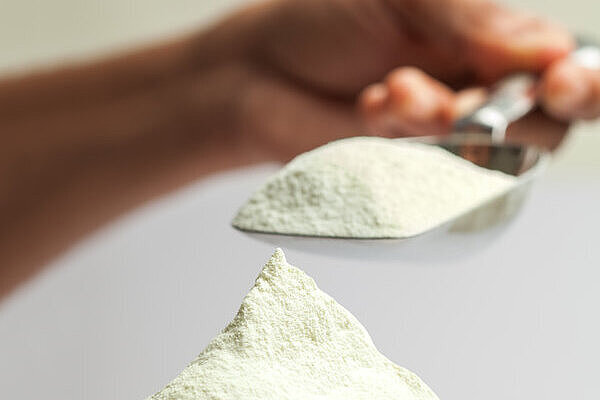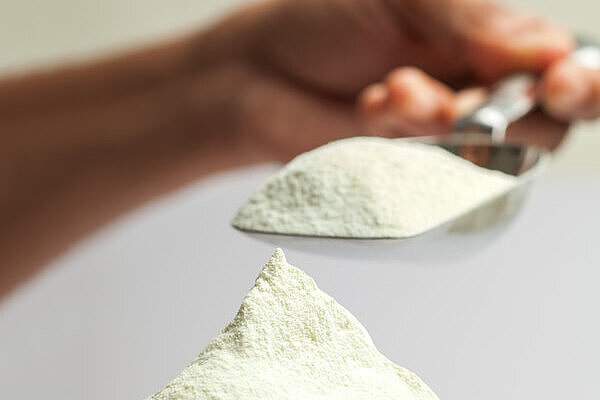Whey fat powder
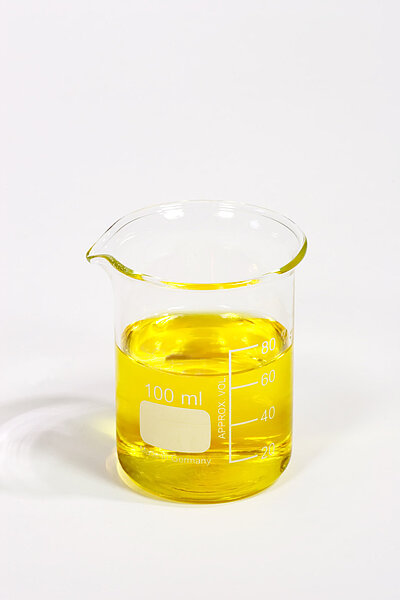
Whey fat powder is a product obtained from the drying of whey. Whey is the liquid left over from cheese production. Whey fat powder contains a lot of protein, lactose and fat. It is often used as a food supplement for humans and animals.
But is whey fat powder also good for dogs? What are its advantages and disadvantages? In this article, you'll find out more about this ingredient and how you can feed it to your dog.
The benefits of whey fat powder for dogs
Whey fat powder can have several positive effects on your dog's health. For example:
- It provides a lot of energy and calories. This can be useful if your dog is sick or malnourished or if he has a high energy requirement (e.g. for sports or working dogs).
- It supports muscle building and regeneration. This is due to the high protein content of whey fat powder, which promotes protein synthesis.
- It strengthens the immune system and intestinal flora. This is due to the immunoglobulins, lactose and probiotic cultures it contains, which can improve the immune system and digestion.
- It cares for the skin and coat. This is due to the high content of biotin, a vitamin of the B group, which is important for healthy skin cells and hair growth.
The disadvantages of whey fat powder for dogs
However, whey fat powder also has some potential disadvantages for dogs. For example:
- It can lead to obesity. This is due to the high fat and calorie content of whey fat powder, which can lead to weight gain if your dog doesn't get enough exercise or is already too fat.
- It can lead to digestive problems. This is due to the lactose in whey fat powder, which some dogs cannot tolerate well. This can lead to flatulence, diarrhea or vomiting.
- It can lead to allergies or intolerances. This is due to the various components of whey fat powder, to which some dogs can react sensitively (e.g. milk protein or dextrose). This can lead to skin rashes, itching or gastrointestinal complaints.
How do you feed whey fat powder to dogs?
If you want to give your dog whey fat powder, you should bear a few points in mind:
- Ask your vet for advice. He can tell you whether your dog needs or tolerates whey fat powder and how much you should give him.
- Buy a high-quality product without additives. Make sure that the whey fat powder does not contain any artificial colors, flavors or preservatives.
- Mix the powder with your dog's food or water. You can mix the powder directly into the dry or wet food or dissolve it in a little water and offer it as a drinking solution.
- Start with a small amount and increase it slowly. This way you can observe how your dog reacts to the powder and whether he likes it.
Whey fat powder provides energy, supports muscle building, strengthens the immune system and cares for dogs' skin and coat. However, it can lead to obesity, digestive problems and allergies. Before feeding it, consult your vet, choose a high quality product without additives and mix it slowly into your dog's food or water.
If you notice any signs of hypersensitivity or poisoning in your dog, you should see your vet immediately. We are not a substitute for a vet, but we try to be as accurate as possible. Every dog reacts differently and we recommend you get a second opinion or consult your vet if in doubt.
Stay healthy and take good care of your four-legged friend!😊
Similar to Whey fat powder
Whey protein concentrate is protein that remains in the whey during cheese production. Whey is a liquid that mainly contains lactose, minerals, free amino acids and protein residues. These protein...
Skimmed milk powder is a dairy product made by removing water and fat from milk. It has a lower energy content than whole milk and contains fewer fat-soluble vitamins. However, it has a longer shelf...
Whole milk has a water content of around 87.5%. This is reduced to around 3% for powder production (non-free water). Around six to seven liters of milk are required to produce one kilogram of whole...
Milk powder is a product made by evaporating the water from milk. The solid components of the milk, such as protein, fat, carbohydrates, vitamins and minerals, are retained. The advantage of milk...
